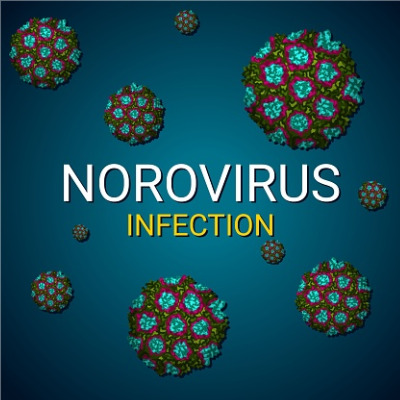
Winter is also the peak season for noroviruses. These highly contagious pathogens are known to cause gastrointestinal infections and lead to numerous cases of illness every year.
Noroviruses are mainly transmitted through contact with infected people or contaminated objects. The viruses spread particularly quickly in enclosed spaces, such as schools, nurseries or care facilities. They can also be transmitted via food or water.
Typical symptoms of a norovirus infection are diarrhoea, vomiting, abdominal pain and nausea. The symptoms usually occur suddenly and last for a few days. Although the illness is usually harmless, it can lead to serious complications, especially in older people, children or people with a weakened immune system.
To protect yourself from noroviruses, it is important to maintain good hygiene. Washing your hands regularly, especially after using the toilet and before eating, and disinfecting surfaces can help to prevent infection. Care should also be taken not to consume contaminated food and to stay away from people who show symptoms of norovirus infection.
Overall, it is important to pay particular attention to your health in winter and take precautions to prevent infection with noroviruses. If you do fall ill, it is advisable to drink plenty of fluids and take it easy to get over the illness quickly and without complications.
Please only use disinfectants that are effective against noroviruses. Ensure that the products are labelled as limited spectrum of virucidal activity (effective against enveloped viruses as well as non-enveloped adenoviruses, noroviruses and rotaviruses) or virucidal (effective against all enveloped and non-enveloped viruses). These disinfectants are able to inactivate noroviruses. Observe the specified concentrations and contact times according to the manufacturer’s instructions.
Conclusion:
Disinfecting your hands and surfaces can eliminate the virus and thus prevent the spread of infection.

